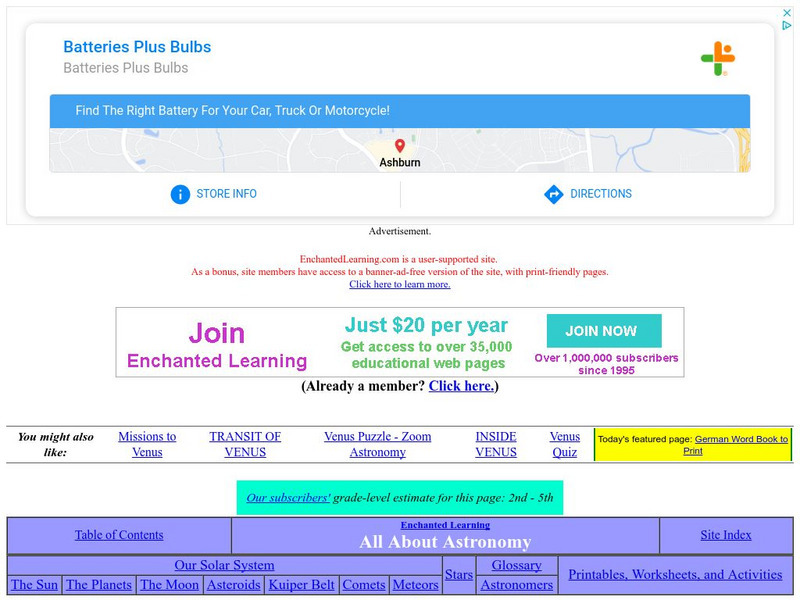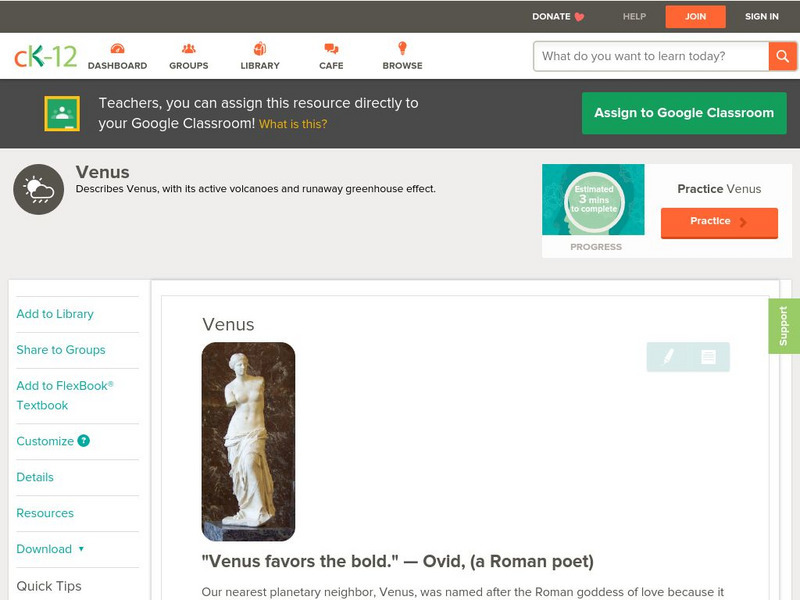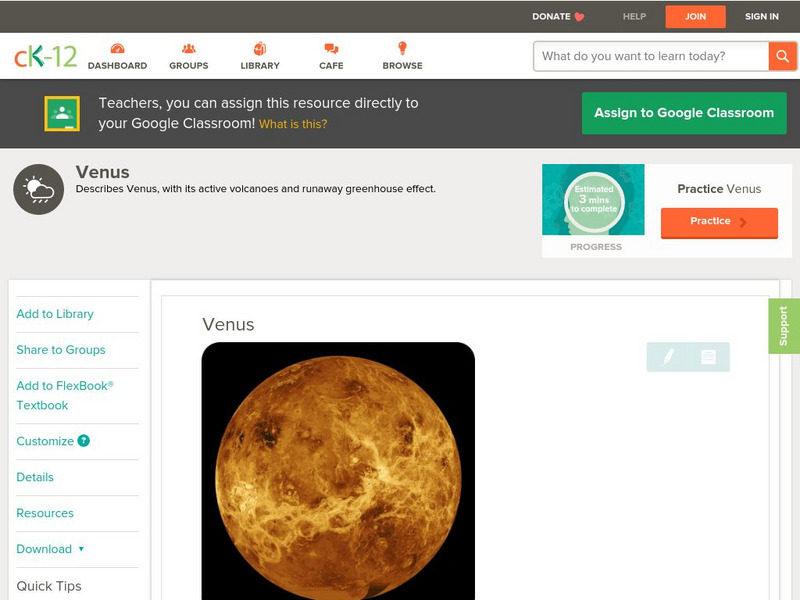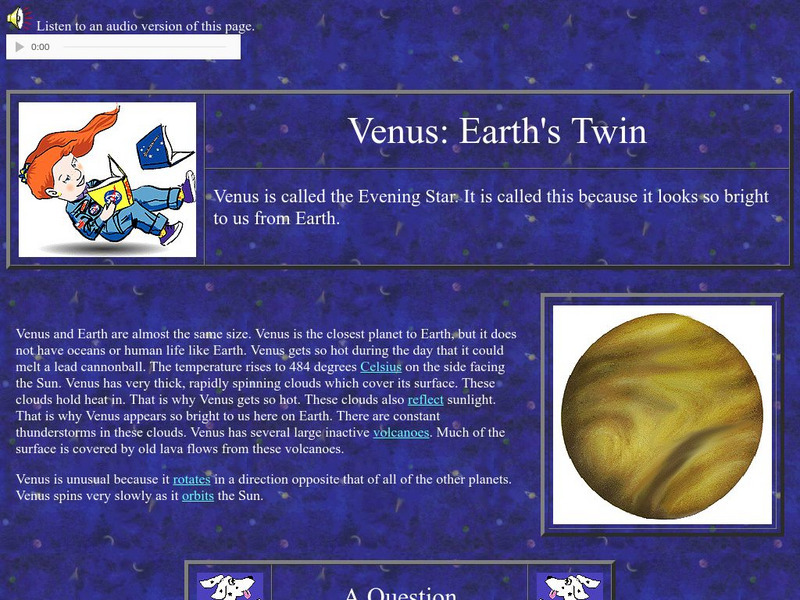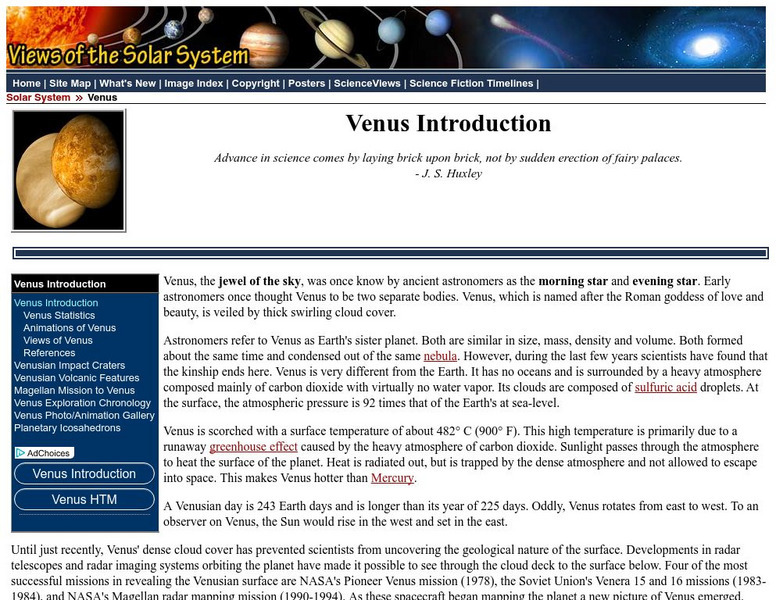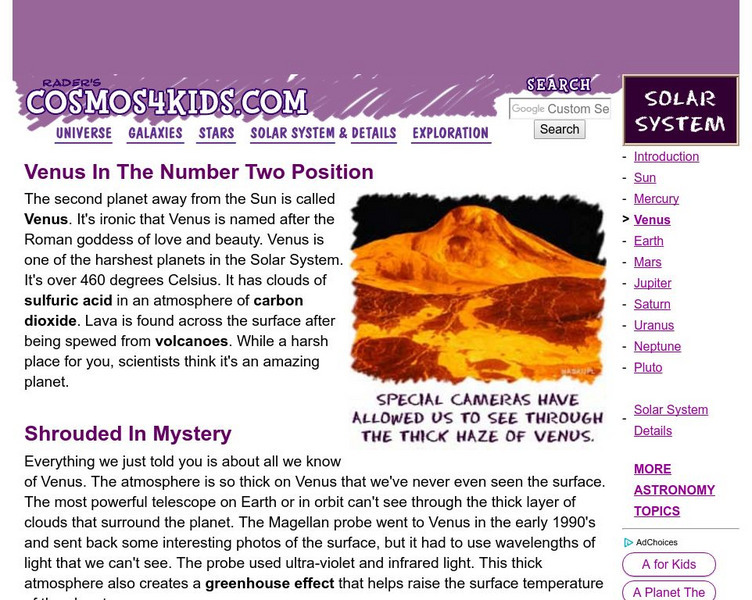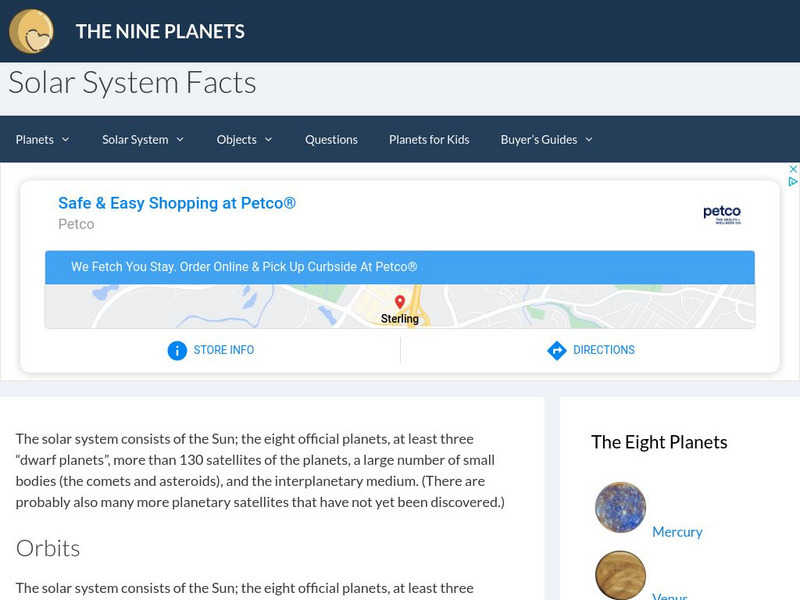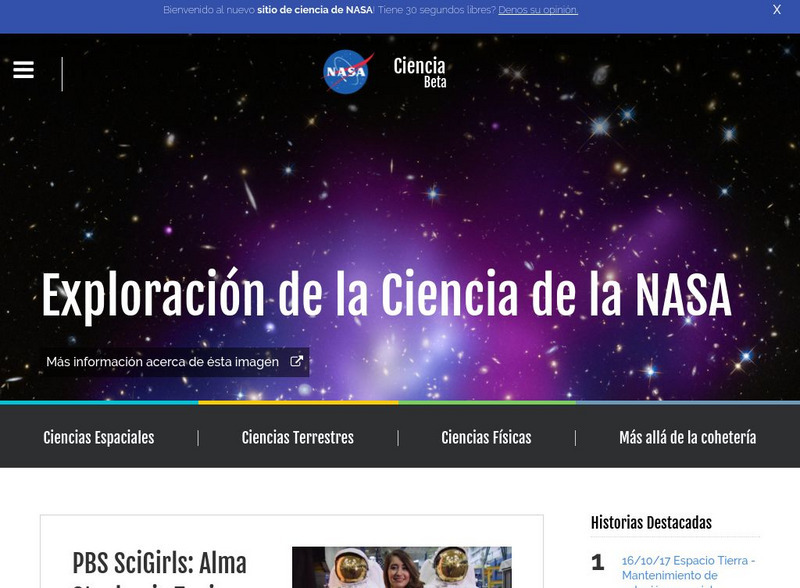Smithsonian Institution
National Air and Space Museum: Exploring the Planets: Venus
Get the facts on Venus. Resource offers a variety of satellite images and facts about the structure and features of Venus.
Enchanted Learning
Enchanted Learning: All About Space: Venus
All About Space profiles the planet Venus with information about its size, mass, atmosphere, length of day, and the like. Features include interactive activities and learning exercises.
CK-12 Foundation
Ck 12: Earth Science: Venus
[Free Registration/Login may be required to access all resource tools.] Learn about the distinctive features of the planet Venus.
CK-12 Foundation
Ck 12: Earth Science: Venus
[Free Registration/Login may be required to access all resource tools.] Learn about the distinctive features of the planet Venus.
NASA
Nasa Star Child: The Planet Venus
Basic facts about the planet Venus including its temperature, its atmosphere, and its volcanoes. Includes a discussion question on temperature, with facts, and the answer. A linked page covers similar material in a "Level 2" version, and...
Ducksters
Ducksters: Astronomy for Kids: The Planet Venus
Kids learn about the planet Venus of the Solar System including fun facts, mass, day, year, and distance from the Sun. Astronomy for kids and teachers.
American Museum of Natural History
American Museum of Natural History: Venus O Logy Card
Flip this interactive card to start learning about the planet Venus. Answer multiple-choice and fact-or-fiction questions and review some fast facts about Venus.
Views of the Solar System
Views of the Solar System: Venus
Discover interesting information about the planet Venus through a vast archive of photographs and scientific facts.
Cosmos 4 kids
Cosmos4 Kids: Solar System: Venus
Learn the basic facts about the planet Venus. The brief, to the point text makes this site most suitable for younger researchers.
Seeker
Seeker: Week of 3 17 14: Active Volcanoes Revealed on Venus
Active volcanoes have been discovered on the planet Venus. Learn what this means about our understanding of this planet.
European Space Agency
European Space Agency: Esa Kids: Our Universe: Venus
A basic overview of the planet Venus. Links to information about the other planets and objects in the solar system are included.
California Institute of Technology
Cool Cosmos: Ask an Astronomer: Venus
Resource offers the answers to many frequently asked questions about Venus. Kids can click on the user-friendly question links to learn more about this amazing planet.
Smithsonian Institution
National Air and Space Museum: Exploring the Planets: Our Solar System
Take a tour of our solar system and learn fascinating details and observations about the planets.
University of Texas at Austin
The University of Texas Mc Donald Observatory: Venus
Discover interesting facts about Venus, the hottest planet and the second planet from the Sun.
Enchanted Learning
Enchanted Learning: Zoom Astronomy: All About Space
A fantastic collection of information about the solar system. Includes information on all of the planets, the moon, the sun, asteroids, comets, meteoroids, and stars. Also find puzzles, a dictionary, quizzes, classroom activities, and...
Wonderville Media
Wonderville: Planets
There are eight planets in orbit around our Sun. These planets form our solar system. The eight planets are Mercury, Venus, Earth, Mars, Jupiter, Saturn, Uranus, and Neptune. There are also rocks, moons, comets, and other objects going...
Nine Planets
The Nine Planets: An Overview of the Solar System
A detailed overview of the history, mythology, and current scientific knowledge of each of the planets and moons in the solar system.
Science4Fun
Science4 Fun: Venus
Learn fun facts and details about the atmosphere, geography, composition, and discovery of Venus, the second closest planet to the sun.
Smithsonian Institution
National Air and Space Museum: Exploring the Planets: Ancient Times & the Greeks
In ancient times only five planets were known: Mercury, Venus, Mars, Jupiter, and Saturn. Learn about Greek astronomer Ptolemy's theory for the solar system that was to survive for fourteen centuries.
NASA
Nasa: La Historia De Hoy: Today's History (Spanish)
Explore the depths of space and science comprehensive information about the meteor showers in 2004, the transit of Venus, virtual reality, and other interesting science history.
TeachEngineering
Teach Engineering: Mercury and Venus
Students explore Mercury and Venus, the first and second planets nearest the Sun. They learn about the planets' characteristics, including their differences from Earth. Students also learn how engineers are involved in the study of...
Nine Planets
The Eight Planets: Just for Kids
Here is a clear, simple picture of the solar system. Click on the names of the planets to learn more about each. Clicking on underlined terms takes you to more and more detailed scientific information.
NASA
Nasa: Solar System Exploration
Enter our solar system to interact with the planets, moons, asteroids, meteors, and more. Investigate with NASA scientists and explore missions related to space exploration. Read facts, compare statistics, look through resources, and...



